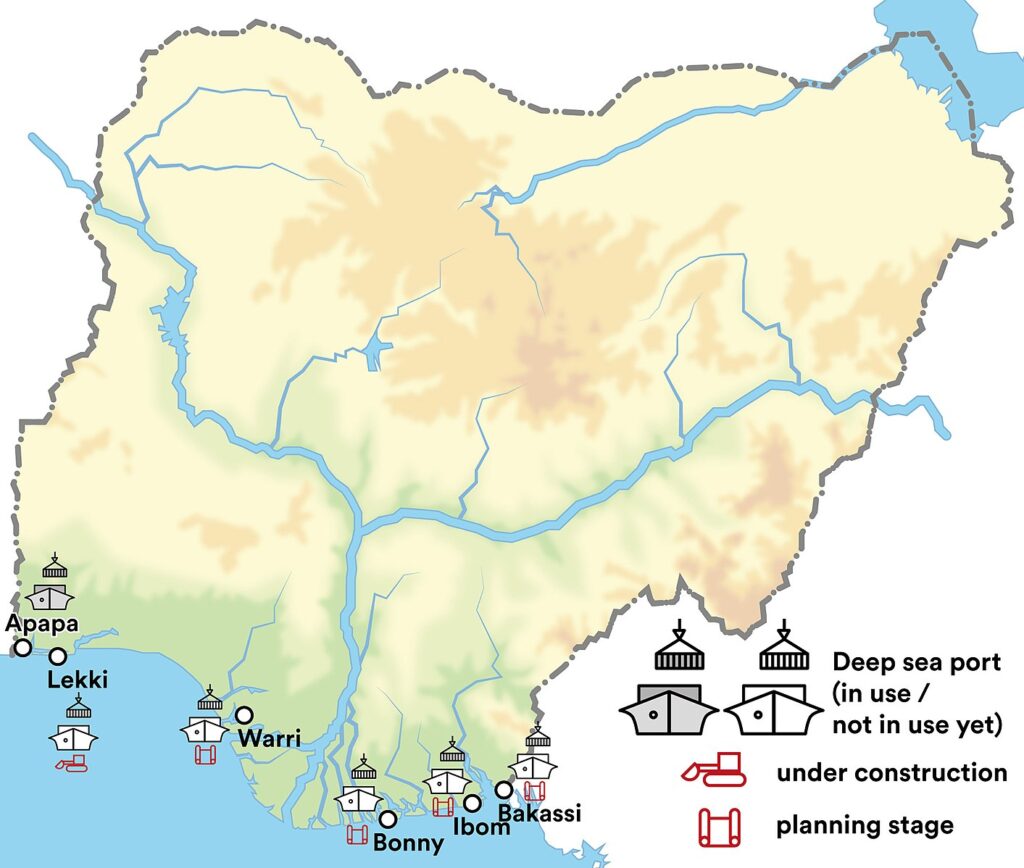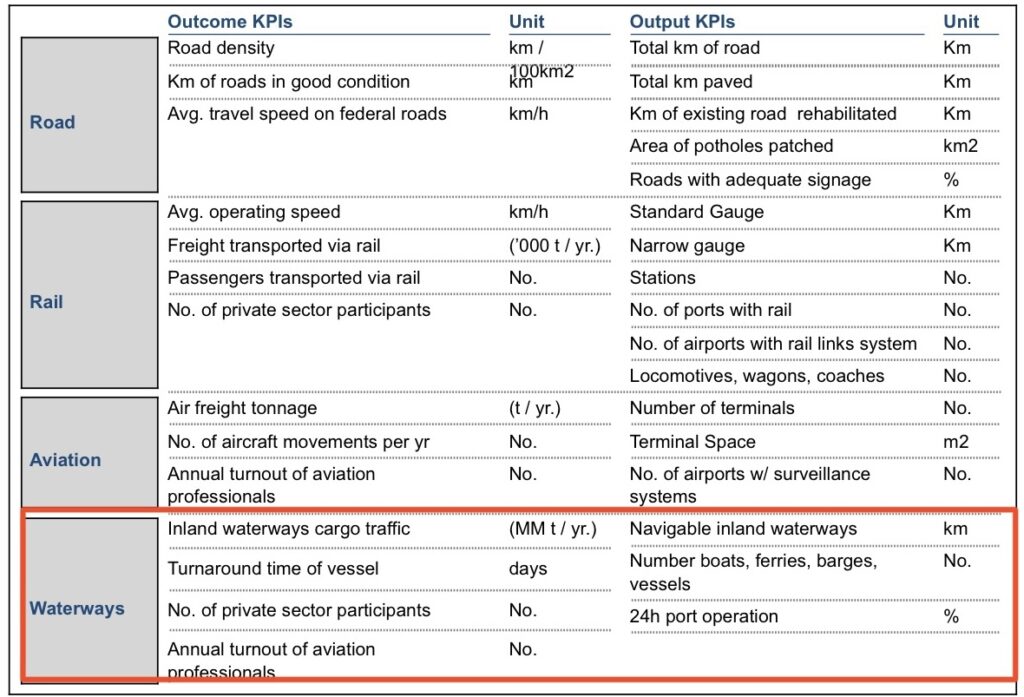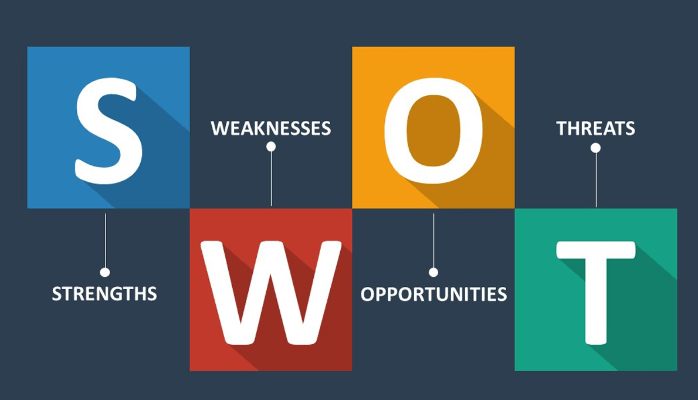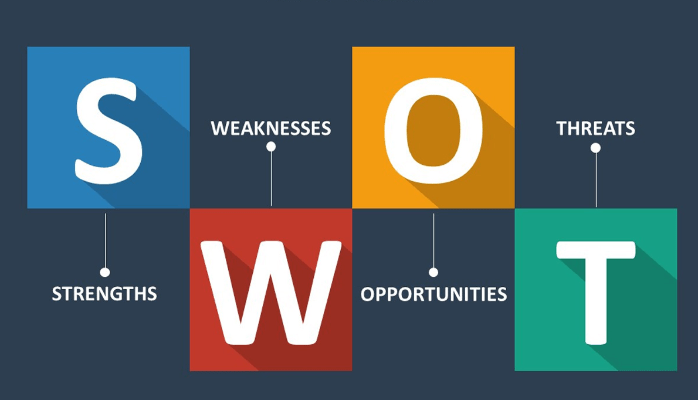Introduction
Nigeria’s maritime sub-sector, which includes the ports and inland water transport system, is an indispensable component of the nation’s economy. It performs a pivotal function in the facilitation of international trade, whilst concurrently constituting a critically important source of revenue.
Since the implementation of various reforms, and the investment of USD 384 million for infrastructural expansion well over a decade ago, the operations, provision and maintenance of cargo handling equipment in Nigeria has been directly undertaken by the private sector.
At present, the Nigerian seaports are comprised of 93 general cargo berths, 6 RORO (Roll-on, Roll-off) berths, 7 bulk solid cargo berths, 11 bulk liquid cargo and 63 buoy berths, and about 1,300 different pieces of cargo handling equipment (Source: NIIMP).
The private sector has also been granted concessions for virtually all the major ports, resulting in a remarkable upsurge in the cargo throughput handled in recent years.
The inland water transport system centres on the Niger and Benue rivers, their major tributaries, creeks, lagoons and lakes – a total of about 10,000 kilometres in waterways. However, only about 3,800 kilometres are navigable. This constitutes a major challenge to profitable and sustainable inland water transportation.
Today, the maritime sub-sector faces numerous challenges including frequent changes in policy, a multiplicity of government agencies in the ports, congestion problems, the need to improve power supply for effective port operations, need for greater economic regulation, and the need to accommodate current and emerging traffic in seaports. Other challenges include:
- Poor management of existing facilities
- Capacity constraints as existing facilities cannot cope with the demand leading to congestions
- A bureaucratic clearing process, involving multiple agencies and semi-automated processes (e.g., scanning)
- Aggregate shortfall of skilled manpower and professionals required in the industry
Overcoming these challenges will require a holistic and comprehensive approach that takes into consideration the interrelation of seaports with other sectors of the economy. The planning of port infrastructure and its regulation therefore should be achieved in the context of integration and intermodalism in order to accomplish the desired transformation in the sector.
In our view, the maritime sub-sector is positioned to deliver annual revenues of N14 trillion to the Federal Government (FG) – if the required infrastructure investments are put in place.
In our featured diaspora remittances insight, we mentioned that the FG has a viable option of pursuing this avenue as a long-term FDI source, some of which can be immediately channeled to improve Nigeria’s maritime sub-sector potential – of becoming a major ‘gold mine’ for the Nation within the next few years. In this featured insight, we highlight some challenges and way forward below.
Current Challenges
- Inadequate Infrastructure: The maritime infrastructure in Nigeria is outdated and insufficient to meet the growing demands of international trade. The ports lack modern equipment and facilities, leading to inefficiencies in cargo handling and delays in clearance processes. This hampers the overall competitiveness of Nigeria’s maritime sub-sector.
- Inefficient Port Operations: Another challenge faced by Nigeria’s maritime sub-sector is the inefficiency of port operations. Lengthy bureaucratic procedures, unnecessary documentation requirements, and delays in cargo clearance contribute to increased costs and time wastage for importers and exporters. These inefficiencies discourage foreign investors and hamper trade growth.
- Maritime Security Concerns: Nigeria’s maritime sub-sector also grapples with significant security concerns. Piracy, armed robbery, and illegal activities in its waters pose a threat to vessel operations, crew safety, and cargo security. The lack of adequate maritime security measures and surveillance capabilities increases risks and deters international shipping companies from utilizing Nigerian ports.
- Corruption and Governance Issues: Corruption and governance issues persistently plague Nigeria’s maritime sub-sector. Instances of bribery, extortion, and embezzlement undermine the integrity of port operations and impede the sector’s growth. Weak governance structures and lack of transparency hinder efforts to combat corruption effectively.
Way Forward
To address these challenges and propel the growth of Nigeria’s maritime sub-sector, the following steps can be taken:
Infrastructure Development: Investments should be made to modernize and expand the maritime infrastructure. Upgrading port facilities, enhancing cargo handling equipment, and implementing advanced technology solutions will improve efficiency and reduce turnaround times. The required infrastructure investments amount to about USD 50 billion, mostly for sea port infrastructure, and inland waterways in order to transport products and people, using the nation’s water resources.
- Modernization of Port Operations: Streamlining and digitizing port operations can significantly improve efficiency. Simplifying administrative processes, implementing an integrated single-window system, and reducing unnecessary documentation requirements will enhance the ease of doing business and attract more trade.
- Enhancing Maritime Security: Strengthening maritime security measures is crucial to instill confidence in international shipping companies. Increasing surveillance capabilities, deploying specialized security forces, and collaborating with international partners to combat piracy and illegal activities will improve the safety and security of Nigeria’s waters.
- Addressing Corruption: Efforts should be made to tackle corruption within the maritime sub-sector. Implementing robust anti-corruption measures, promoting transparency, and holding accountable those involved in corrupt practices will help restore trust and improve governance.
- Strengthening Governance: Effective governance structures and regulatory frameworks must be established and enforced. Strengthening institutions responsible for overseeing the maritime sector, promoting transparency in decision-making processes, and engaging stakeholders in policy development will ensure a conducive environment for growth.
Conclusion
Nigeria’s maritime sub-sector faces significant challenges that hinder its growth and potential. By addressing the inadequate infrastructure, inefficiencies in port operations, maritime security concerns, and corruption and governance issues, Nigeria can unlock the full potential of its maritime sub-sector.
With the right strategies and investments, Nigeria’s maritime sub-sector can become a vibrant hub for international trade and contribute significantly to the country’s economic development.
FAQs
- Q: How can inadequate infrastructure be overcome in Nigeria’s maritime sub-sector? A: To overcome inadequate infrastructure, investments should be made to modernize and expand port facilities, upgrade cargo handling equipment, and implement advanced technology solutions.
- Q: What are the major challenges faced by Nigeria’s maritime sub-sector? A: The major challenges include inadequate infrastructure, inefficient port operations, maritime security concerns, and corruption and governance issues.
- Q: How can corruption within the maritime sub-sector be addressed? A: Corruption within this sub-sector can be addressed by implementing robust anti-corruption measures, promoting transparency, and holding accountable those involved in corrupt practices.
- Q: What steps can be taken to enhance maritime security in Nigeria? A: Enhancing maritime security involves increasing surveillance capabilities, deploying specialized security forces, and collaborating with international partners to combat piracy and illegal activities.
- Q: How can port operations be modernized in Nigeria? A: Port operations can be modernized by streamlining and digitizing administrative processes, implementing an integrated single-window system, and reducing unnecessary documentation requirements.







